What should you study in preparation for IELTS
Hi My name is Jonathan and I am the author of this website, ielts-jonathan and the creator of IELTS Courses and Feedback.
I am putting together a IELTS Study Plan which you can get for free by signing up to my Newsletter.
I am making this IELTS Study Planner because many students don’t know where to start with IELTS preparation.
This post tells you about the basics of preparing for the IELTS exam and gives you some useful strategies whether you are just starting out or have been studying IELTS for some time. 🙂
What kind of Preparation for IELTS
Some students do practice after practice test, in the belief that the IELTS test can be passed if taken enough times.
While it is really very important to have a good understanding of the test format, and how the IELTS test works, this is not the ‘ticket to success’.
I strongly argue that continually improving your language ability AND general knowledge of common IELTS topics and themes is equally as important as understanding the IELTS test format.
Having the ability to critically evaluate and respond, for example, in the IELTS speaking and writing test, and in a number of key important areas of these tests, can, and will, greatly improve the answers you give.
Developing this ability will also help your understanding of the IELTS reading and listening sections too.
How often to focus on IELTS Preparation
My years of experience as a teacher means I also think that a little and often is a more effective strategy than that a lot and occasionally.
However this is, of course, dependent on your individual learning style and how soon you are taking the IELTS test.
In the following sections I have made is a list of exercises and resources that can be incorporated into your effective IELTS study plan.
These resources will be useful whether your plan is long or short-term.
The topics and themes you choose for each exercise should be taken predominantly from the themes that are common in IELTS exams, so I have prepared a IELTS topic list for students as well.
This will help you select resources that can be both interesting and useful in your IELTS and General English preparation.
Common IELTS Test Themes
Here is a list of common IELTS themes I have seen over the past year or so.
IELTS themes over the last year.
IELTS Resources
You can use these resource themes to help improve your critical thinking skills.
However, these exercises are just suggestions.
They will help you gain some knowledge and experience for IELTS but do not represent a list of resources that guarantee an IELTS band or IELTS success.
Listening Resources
For IELTS listening my advice is you should actively listen to podcasts that broadcast several topics over series in a variety of standard accents rather than tune into one particular voice.
Standard accents are the accents found in the IELTS tests.
These are generally British, American and Australian English, but other accents also appear.
Doing this will mean that you will be able to deal better with accents.
You can then focus on the content of the IELTS Listening test, in other words: focus on listening for the answers.
Here are some links I have encouraged my students to use in the past.
Engage in Mock Exams:
When you are more confident in listening to a variety of accents and voices, you can then try mock IELTS tests.
There are free tests that you can access here:
Mock listening Exam-Style Exercises
Reading Resources
To prepare for IELTS reading you should actively read academic style articles on themes seen in recently IELTS exams.
Focussed reading and reading for a purpose are also great ways to increase your IELTS vocabulary, your general IELTS reading speed, the skimming and scanning skills needed in the IELTS reading test and general background knowledge and experience.
So there are many good reasons for just reading. 🙂
One tip is: If you find reading a challenge, start with reading around topics that you find interesting.
As your ability to deal with vocabulary, text organisation and layout, and your reading speed improves you can move onto more challenging articles and texts.
Here are some good online publications to get you started;
Engage in reading mock exams:
Once your ability to deal with the organisation of text and your reading speed has improved, you can then move onto IELTS mock reading tests.
Mock General Reading from the British Council website
Mock Academic reading from the British Council website
Writing Resources
One of the best ways to improve your writing is to improve your vocabulary and practice.
Reading is a great way to acquire vocabulary.
Both speaking and writing are the effective ways of remembering and recycling new vocabulary too.
Improved vocabulary also increases your ability and skills with grammar and can make your writing more flexible so you are able to deal with the requirements of the IELTS writing test.
Of course, with improved vocabulary, you can also express yourself more. 🙂
In this case, it is important to focus on the exam tasks, get feedback or at least comments on your IELTS writing.
Most students do badly in IELTS writing becuase they don’t understand what the examiner expects to see.
This means the examiner will have to award a lower mark.
Understanding the marking criteria is a quick-win way to improve your score quickly.
Of course, you still need to be able to organise your writing and use grammar and vocabulary well enough for the higher IELTS band scores. 🙂
Engage in Writing Mock Exams:
Once you understand the principles of both IELTS Report and Essay writing and how the IELTS marking criteria works, you can try mock exams.
Focus on reporting accurately what you see in IELTS Task 1 Reports, and answering the question and generating enough ideas for IELTS Task 2 Essays.
Here are some free IELTS resources you could start with:
Mock General Task 1 and 2 Writing Exam with Model Answer form the British Council
Mock Academic Task 1 Writing Exam with Model Answer from the British Council
Mock Academic Task 1 and 2 Writing exam with model answer form the British Council
Speaking Resources
Increasing your vocabulary generally and practicing IELTS speaking themes will help you be more confident when it comes to the IELTS Speaking test.
Practicing your speaking in general will, of course, help you, however, focussing on the tasks and topics areas of IELTS is always a best idea.
The test is divided into three parts and you need to do three clealy different things in each part: IELTS Speaking Part 1, 2 and 3.
I have a list of common questions used by IELTS examiners.
You can use these to get an idea of topics and the kind of responses you could give.
You physically need to do the speaking though to improve.
You can practice in the mirror or with a friend, but my current favourite with my students is Flipgrid.
Students record their reponses to IELTS questions and then they are able to review and monitor their response, fluency, answer and pronunciation. 🙂
Again you need some kind of feedback to make sure you are doing the right things.
A good teacher is always useful.
Review model tests:
There are not many resources for IELTS speaking and because IELTS speaking is an instant communication test, your really need a reliable partner or a teacher to make improvements.
But there are some free resources for IELTS to get started with here.
Model Speaking test with sample answers published by the British Council
Remember, you can use all of the above materials to help revise for IELTS and to generally increase your background knowledge as well as your vocabulary.
However, it’s important to focus on the common exam themes that appear.
so I have made you a list of these for you.
A list of common IELTS themes seen over the past year.
These exercises are just suggestions and do not represent a list of resources that guarantee an IELTS band but using these as a guide can certainly help you.
In Conclusion
So this is my introduction to free online IELTS Resources and I hope that this is a good starting point for you.
Just so you know, I run IELTS Courses and I also run IELTS Writing Challenges.
Get in touch if you want to find out more. 🙂
I’m Jonathan
I’ve taught IELTS and University English in more than a dozen universities and schools around the world.
I’m a parent, traveller and passionate about language teaching and helping students achieve their dreams.
Whilst living in Austria or working in Asia, I run IELTS courses to help students get to where they want to be.
If you are serious about IELTS, connect with me to see how I can help you.

The Best Approach to Task 2 Writing
Paragraphing in Task 2 Writing
Writing – Benefits of a Foreign University Education
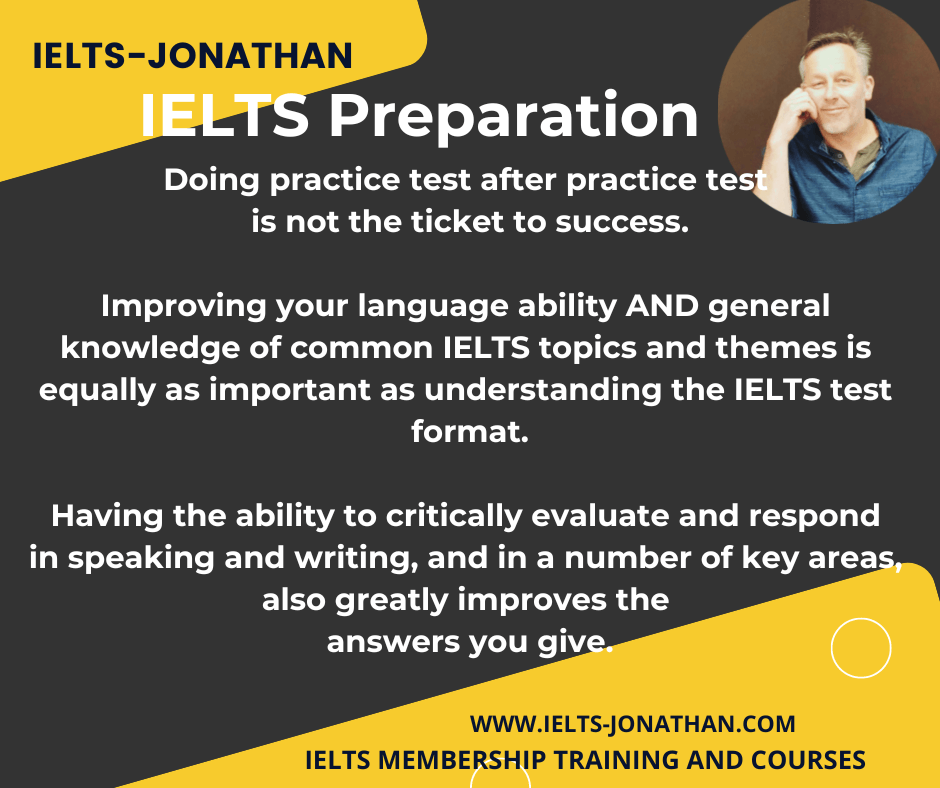
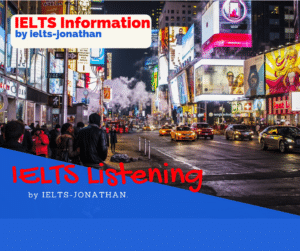
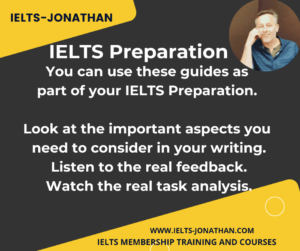
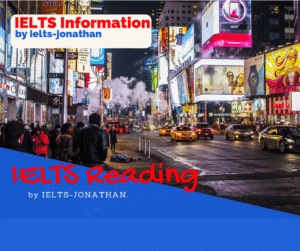
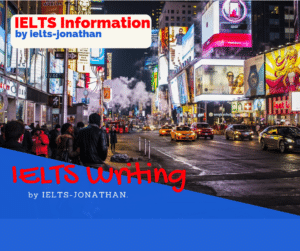
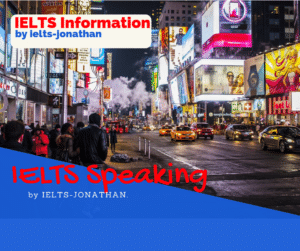


Was this helpful? Leave a comment :)